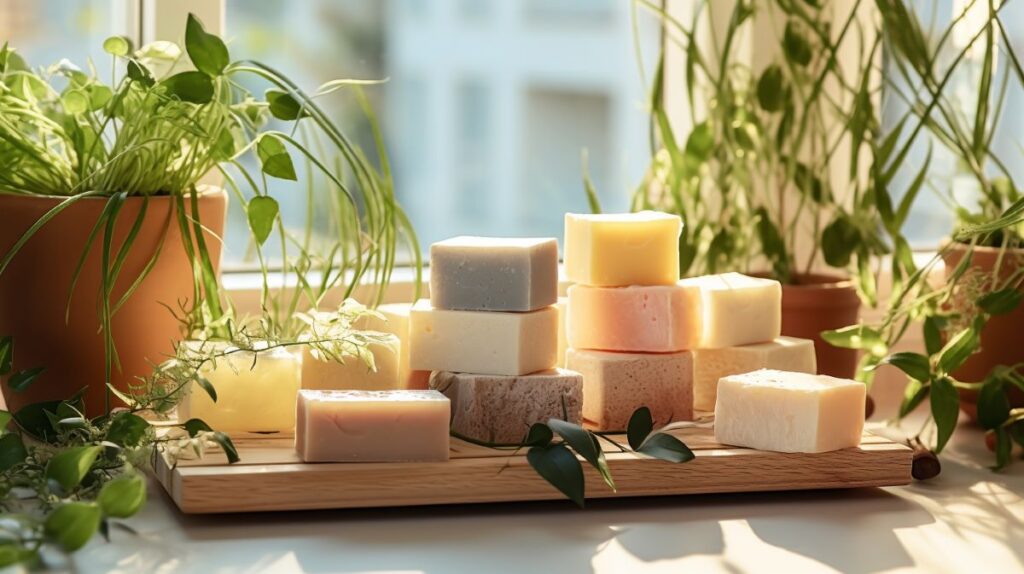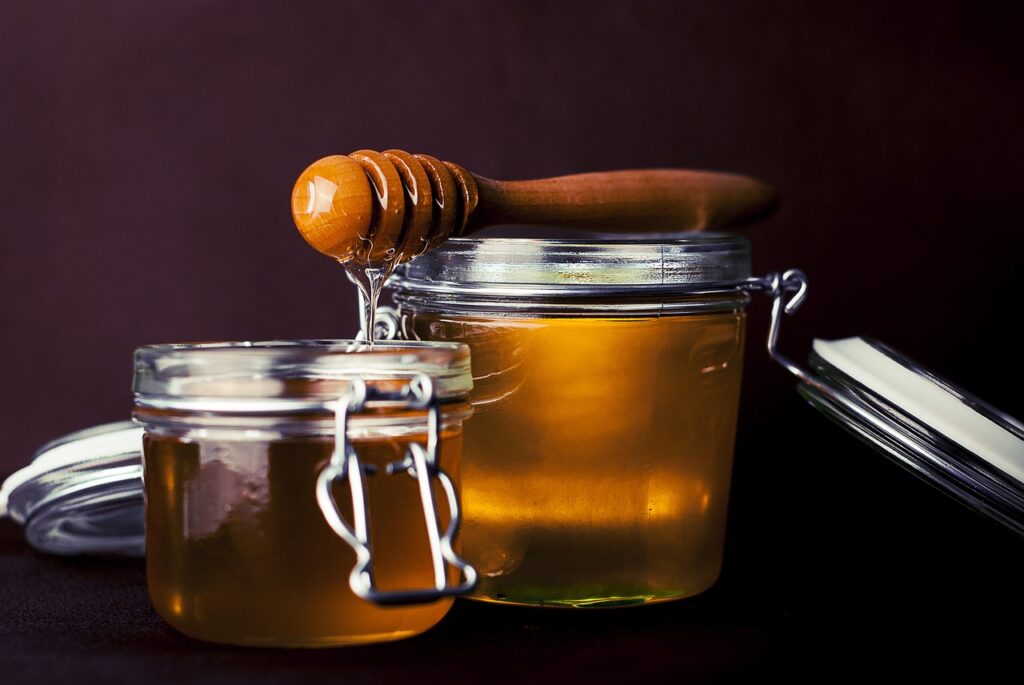7 Patchouli Soap Benefits and 3 Easy Soap Recipes
- Patchouli Soap: A Historic and Natural Choice
- Patchouli Oil: A Fragrant Voyage Through Time
- Why Choose Natural Ingredients?
- 1.) Patchouli Soap for a Natural Home
- 2.) Patchouli Soap as a Natural Antiseptic
- 3.) Patchouli Soap for Skincare
- 4.) Patchouli Soap for Hair Care
- 5.) Patchouli Soap for Aromatherapy
- 6.) Patchouli Soap as a Sleep and Relaxation Aid
- 7.) Patchouli Soap for Mental Well-being
- Essential Oils That Pair Well With Patchouli Essential Oil
- Recipe 1: Patchouli and Lavender Soap
- Recipe 2: Patchouli and Citrus Soap
- Recipe 3: Patchouli and Rose Soap
- Key Takeaways
- What are the benefits of using patchouli soap?
- Does patchouli soap smell good?
- What essential oils blend well with patchouli in soap?
- What is an easy beginner-friendly patchouli soap recipe?
- Can you make patchouli soap without lye?
- What ingredients make a good natural patchouli soap?
Patchouli Soap: A Historic and Natural Choice
Patchouli has a long, intriguing history, and its scent has been treasured for centuries. Before exploring patchouli soap benefits and simple recipes, it helps to understand why this aromatic herb has remained such a valued ingredient in natural skincare.
Patchouli Oil: A Fragrant Voyage Through Time
Patchouli oil comes from the leaves of the Pogostemon cablin plant, native to Southeast Asia. Its unmistakable aroma made it a prized commodity across ancient trade routes, especially along the Silk Road. It was so valued that merchants used it to protect precious textiles from insects, and it even found its way into royal households in Ancient Egypt.
Here is a fun fact that surprises most people:
Patchouli once had the same value as gold in the 19th century. Its demand was so high that it was literally traded by weight.
With a history this rich, it is no wonder patchouli continues to be a powerful and beloved ingredient in natural skincare today. If you enjoy plant-based solutions, soothing scents, and gentle, nourishing ingredients, patchouli soap is a fantastic addition to your routine.
Why Choose Natural Ingredients?
We often forget that our skin is our largest organ, and everything we put on it can get absorbed into our bodies. This is why it’s so important to be conscious about the products we use. So, why should you consider natural soaps like patchouli?
- Earth-Friendly: Natural ingredients are generally more sustainable and have less environmental impact.
- No Harsh Chemicals: Natural soaps are free from harsh detergents and synthetic ingredients that can dry out or irritate your skin.
- Rich in Nutrients: Soaps made from natural ingredients often contain essential vitamins and minerals beneficial for your skin.
By choosing patchouli soap, you’re opting for a product with a captivating scent and historical intrigue and ensuring a kinder, healthier choice for great skin and the planet.
Patchouli Soap Benefits
Ever wondered why patchouli soap and others like it have become so popular over recent years? If you look on Amazon for “Natural Bar Soap,” you’ll find many options and scents, all genuinely natural. Not only that, but many individuals have gravitated towards creating their own natural soaps at home. Patchouli soap is a fantastic, all-natural soap to add to your skincare routine.
- 100% Natural
- Powerful antiseptic
- Great for skincare
- Excellent for hair care
- Aromatherapy benefits
- Relaxation aid
- Boost mental well-being
Note: According to a 2018 survey, sales of natural beauty and personal care products were estimated at $1.3 billion, highlighting the burgeoning demand for natural products like patchouli soap.
1.) Patchouli Soap for a Natural Home
Imagine converting your home into a mini spa with one of the most popular scents in recent years. Patchouli as a scent has become increasingly popular, especially since the mass adoption of essential oils years back. Sounds good, right? It’s 100% natural, free of harmful chemicals, and leaves your home smelling absolutely amazing.
Patchouli is often used in eco-friendly products because of its natural, biodegradable properties. Its earthy, sweet scent is also a natural deodorizer, perfect for keeping your home fresh and inviting.
2.) Patchouli Soap as a Natural Antiseptic
Did you know that patchouli essential oil is a powerful antiseptic? Studies show that Patchouli oil, one primary component of the soap, is rich in antibacterial and anti-fungal properties. This makes it excellent for preventing infections and promoting wound healing. Health and cleanliness in one package!
3.) Patchouli Soap for Skincare
Depending on the recipe or brand, it’s paired with essential oils that moisturize, soothe, and rejuvenate the skin, making it a fantastic choice for maintaining a healthy glow. According to research, patchouli oil can even help reduce signs of aging and was the least irritating oil tested.
4.) Patchouli Soap for Hair Care
As with most natural soaps, you’re not limited to using them just on your skin. Patchouli soap can also be used on the hair and scalp. It’s known to improve hair health, promote growth, and even combat dandruff. So, not only do you step out of the shower smelling amazing, but you also get to enjoy refreshed and healthy hair.
5.) Patchouli Soap for Aromatherapy
The benefits of aromatherapy are widely known. The rich, earthy fragrance of patchouli soap is often used in aromatherapy due to its relaxing effect. It’s believed to help reduce stress and promote overall relaxation. Next time you’re feeling overwhelmed, why not unwind with a patchouli soap-infused bath? Put a few drops in your diffuser during the bath for an even better experience.
6.) Patchouli Soap as a Sleep and Relaxation Aid
Speaking of unwinding, patchouli soap is also a fantastic sleep and relaxation aid. Its calming scent can help pave the way for a good night’s sleep, making it a popular choice for bedtime baths. Due to its sedative-like effect, this can help the mind and body to relax, allowing you to drift off into deep sleep more comfortably.
7.) Patchouli Soap for Mental Well-being
Last but not least, patchouli soap can contribute to your mental well-being. Its scent is uplifting, helping to dispel feelings of anxiety as well as overall sadness or lethargy. Not only that, but it can also help increase focus and concentration. Adding any ingredient with these benefits can quickly enhance an otherwise dull soap recipe into something packed with additional benefits.
The Scent of Patchouli Soap
If exploring aromatic, earthy scents is something you enjoy, patchouli soap is likely a delight for your senses. The smell of patchouli is truly unique, often distinguished as deep, musky, and slightly sweet. It’s a fragrance that stands out and is remembered, often lingering subtly on your skin long after you’ve used the soap.
But what would it entail if we were to break down the scent profile of patchouli soap in more detail? Here are a few key components:
- Woodsy: The primary fragrance note of patchouli is reminiscent of a deep forest or rich, damp earth.
- Sweet: While it’s undeniably earthy, patchouli also carries a subtle, underlying sweetness that rounds out its scent profile.
- Musky: A musky note is often associated with patchouli, enhancing its unique and distinctive aroma.
These scent characteristics not only make patchouli soap a beloved choice for many but also mean that it pairs well with various other pure essential oils if you want to mix and match.
Remember: When it comes to the scent of patchouli soap, it may be a love-at-first-sniff scenario for some, but it might also be an acquired taste for others. You never know until you try!
Essential Oils That Pair Well With Patchouli Essential Oil
We are often asked about other essential oils that can blend harmoniously with patchouli’s rich, earthy fragrance. The pairing of essential oils is an art; it often comes down to personal preference. However, a few essential oils are universally recognized to blend excellently well with patchouli.
- Lavender Essential Oil: Lavender and patchouli make a calming, aromatic pair with soothing properties—ideal for a relaxing, spa-like experience.
- Bergamot Essential Oil: When accompanied by the fresh, citrusy aroma of Bergamot, patchouli’s earthy scent takes on a brighter, more energizing note.
- Ylang Ylang Essential Oil: Together, Ylang Ylang and patchouli create a sweet, slightly spicy, and floral aroma for a truly exotic blend.
- Frankincense Essential Oil: Frankincense adds a warm, piney note to the earthiness of patchouli for a grounding, focus-blend.
- Peppermint Essential Oil: The pairing of minty peppermint with earthy patchouli creates an exciting contrast, which results in a refreshing, invigorating blend. Add a drop of orange oil, making this blend even more intriguing.
These combinations can add a unique twist when you’re making your very own patchouli soap. Don’t forget that blending is an art, and it’s all about what you love. As long as you’re using a pure essential oil safe for the skin, feel free to explore, mix, and match.
3 Simple Patchouli Soap Recipes: How to Make Patchouli Soap at Home
Making your own patchouli soap is an exciting and rewarding at-home project. Not only can you tailor the soap to your preferences, but handmade soap also carries none of the artificial ingredients often found in commercially produced soap. With a few simple ingredients and steps, you can create yet another scented and nourishing essential oil soap that has all the benefits discussed earlier. Let’s dive into three simple recipes below.
Note that you can use any soap base of your choice, including glycerin soap base, goat milk soap base, castile soap base, or any other you’d prefer. If you’d prefer not to use a premade soap base, check out our article on how to make your own hot-process or cold-process soap. Lastly, feel free to add shea butter, jojoba oil, castor oil, extra virgin olive oil, or coconut oil for extra moisturizing. Any of these oils will especially help if you have extra dry skin!
Recipe 1: Patchouli and Lavender Soap
These two essential oils, both known for their calming properties, synergize and produce a bar of soap that is perfect before bedtime.
- 225 grams of soap base (your choice)
- 30 drops of patchouli essential oil
- 20 drops of lavender essential oil
- A soap bar mold of your choice
Simply melt the soap base, blend the essential oils thoroughly, then pour the mixture into your mold. Allow it to cool and harden before using.
Recipe 2: Patchouli and Citrus Soap
The earthy scent of patchouli pairs exquisitely with the brightness of citrus to create an energizing and uplifting soap.
- 225 grams of soap base
- 30 drops of patchouli essential oil
- 10 drops of orange essential oil
- A mold of your choice
Follow the same procedure as in the first recipe. Remember to stir well to distribute the essential oils in the melted soap base evenly.
Recipe 3: Patchouli and Rose Soap
Creating a more sophisticated scent profile, patchouli and rose provide a rich, luxurious, and floral fragrance that is a real treat for the senses.
- 225 grams of soap base
- 30 drops of patchouli essential oil
- 15 drops of rose absolute
- A mold of your choice
Like the previous recipes, melt the soap base, add the essential oils, and pour into your chosen mold. Cool and harden before use.
And there you have it. Use these three recipes as a starting point, and feel free to experiment with other oils and soap bases. Just be sure to use the highest quality ingredients. By creating your own patchouli soap, you’re providing another healthy, natural option for your family. There’s something very special about using beauty products we create ourselves.
Conclusion: Embrace Natural Solutions with Patchouli Soap
Patchouli soap is more than a pleasant scent. It is a natural, skin-supportive option that works well for everyday cleansing and offers an enjoyable, customizable DIY project for adults and kids alike. When you make your own soap, you have full control over the ingredients, the aroma, and the overall benefits you want the final bar to deliver.
Homemade patchouli soap also fits perfectly within a natural-living lifestyle. You choose what goes on your skin and avoid unnecessary synthetic additives that many commercial soaps contain. The result is a gentle, effective bar that reflects your preferences and your family’s needs.
Key Takeaways
- Patchouli oil is versatile
It is calming, grounding, and suitable for most skin types. Some people use it for irritation, dryness, or aging concerns. Patch test if you plan to use higher concentrations of the oil. - Natural ingredients support healthier skin
Essential oils, plant oils, herbs, and clays provide benefits without synthetic additives. This makes natural soap a safer option for many families. - Patchouli blends beautifully with other oils
Lavender adds softness, citrus brings brightness, and rose introduces a floral touch. These combinations create unique scents that elevate your soap. - DIY soapmaking allows full customization
You control the fragrance strength, carrier oils, exfoliants, and natural colorants. Making soap can also be a fun activity to involve your kids, giving them a chance to create something useful and personal. - Natural patchouli soap is simple to make and rewarding to use
Whether you enjoy it for the benefits, the aroma, or the creative process, it is a valuable addition to any natural skincare routine.
Crafting your own patchouli soap is an enjoyable way to embrace natural living. You benefit from safe, nourishing ingredients and the satisfaction of creating something by hand. You may even find that the rich, earthy scent transforms your daily routine into a relaxing, spa-like experience.
Patchouli Soap Benefits FAQs
What are the benefits of using patchouli soap?
Patchouli soap offers several natural skin-supporting benefits.
- Helps calm acne and breakouts
- Soothes irritation from eczema and dry patches
- Provides mild anti-inflammatory support
- Naturally deodorizing and grounding for daily use
It is gentle enough for most skin types and works well as part of a natural skincare routine.
Does patchouli soap smell good?
Patchouli has an earthy, musky, slightly sweet aroma that many people find grounding and calming.
If you want a brighter scent, you can blend it with:
- Citrus oils like orange or lemon
- Mint oils like peppermint
- Florals like lavender or geranium
- Woods like sandalwood
These combinations create a well-rounded fragrance.
What essential oils blend well with patchouli in soap?
Some excellent complementary oils include:
- Lavender
- Orange
- Lemon
- Peppermint
- Rosemary
- Tea tree
- Sandalwood
- Ylang ylang
These pairings balance patchouli’s earthy profile and add complexity to your soap.
What is an easy beginner-friendly patchouli soap recipe?
The simplest method is melt-and-pour.
- Choose a natural glycerin or shea butter base
- Melt the base gently
- Stir in patchouli essential oil
- Add optional herbs, clays, or carrier oils
- Pour into molds to set
This approach requires no lye and is perfect for beginners.
Can you make patchouli soap without lye?
Yes. Melt-and-pour soap bases allow you to make patchouli soap safely without handling lye.
If you want to dive deeper, you can also make hot-process or cold-process soap with lye, which offers more customization. See the guide in the post above for details.
What ingredients make a good natural patchouli soap?
A high-quality patchouli soap often includes:
- Plant oils such as olive, coconut, hemp seed, castor, or shea
- Patchouli essential oil for fragrance and skin benefits
- Optional additions like herbs, clays, oats, or natural colorants
These ingredients create a nourishing, gentle, and beautifully scented bar.


